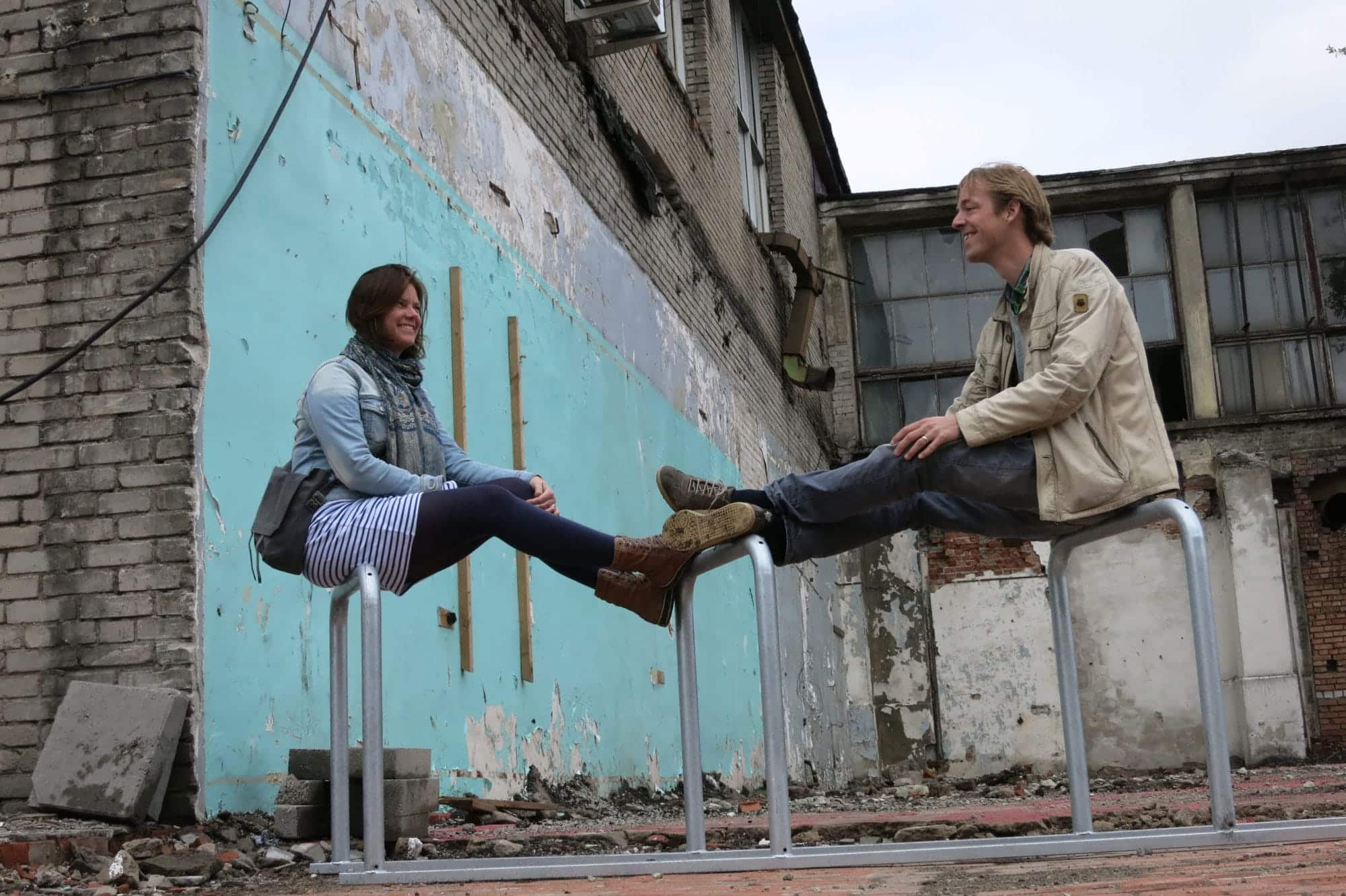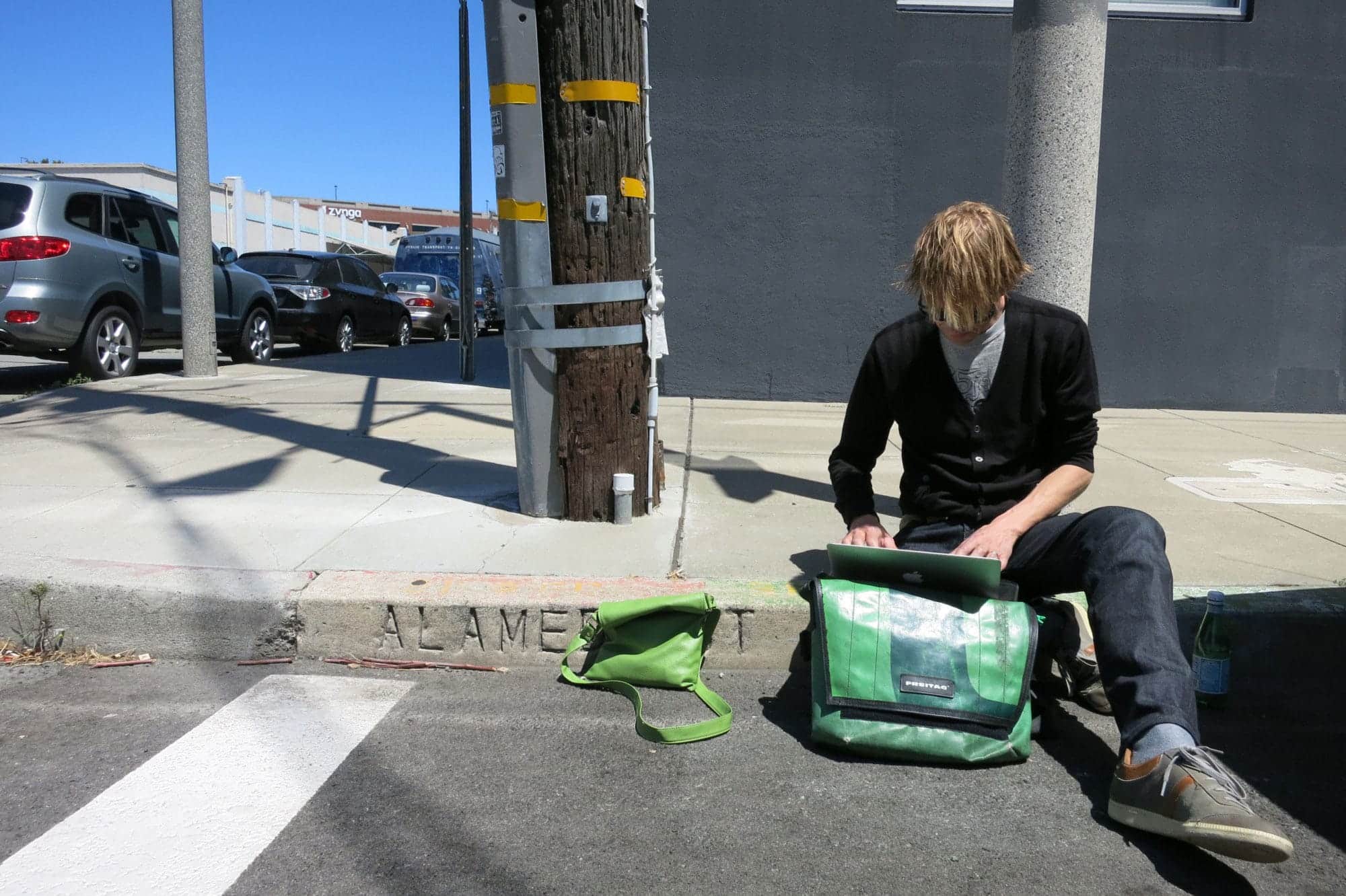
(this article was published earlier on Medium.com. An upvote is highly appreciated!)
When I quit my job and my wife Sanne gave up her successful company in 2008 to start the company of our dreams there were a few things we knew for certain. One of them: we wanted to start and run the company without outside investment.
Most people who start on a shoestring budget, do this to prove their concept is worth investing in. Almost every bootstrapping startup story that I know ends with “and then we found an investor”…
The story of Spotted by Locals doesn’t, and I don’t think it will. Six years after starting we’re still running the company on a shoestring budget. We don’t come across “long term bootstrappers” like ourselves very often. To help those who are considering bootstrapping, I thought I’d share what this choice has meant for us.
Goodbye to (some) possessions
We went from 2 cars in our household to no cars. Unlike many of our friends we did not move from our small 1 bedroom apartment in Amsterdam. We invested our life’s savings to start the company and still invest all our earnings into building the company. We sold many of the things we own.
It was quite scary at first to let go of possessions. But I’ve slowly become a minimalist and I couldn’t imagine another lifestyle now.
In terms of not having a shitload of money, the only thing that I really don’t like: I can’t always afford going out with friends for dinner or concerts.
Postponing is good
As a control freak, I keep action lists for everything. There is always at least a 100 things on my “to do quickly” list. We get so many partnership offers that it’s impossible to work with everybody. We outsource a lot, but we are strongly limited by money.
Sometimes this is frustrating, but I’ve come to realize forcing to choose is actually one of the main advantages of bootstrapping. What we postpone, just wasn’t important enough.
DIY gives satisfaction
We outsource everything we really can’t do ourselves (design, development, editing) but do most of the rest ourselves. On weekends we organized for our bloggers in 2012 & 2014 Sanne and I were (amongst others) helpdesk, receptionist, bartender, groceries and drinks delivery (wo)man, and midnight / early morning cleaners. It makes us feel in touch.

Do you know how to stencil a logo on 200 paper bags? We do (but not as well as our Youtube teachers)
Working with freelancers can suck
We have no employees, so we work with lots of freelancers. They’re much more affordable, flexible and fun to work with than big companies. Often, this goes very well. Sometimes, it’s a nightmare. Both a Dutch app development company and an Indian developer charged us a lot of money in return for apps that sucked and that we could not launch.
One of our most important criteria now for selecting freelancers: they have to understand and truly believe in what we do and are trying to accomplish. Only that way they will do their utmost to help make our project a success.
Think it — do it
Sanne and I have a weekly strategy meeting. Sometimes we come up with a good idea, make a short plan and start executing the same day. It feels so good to be able to do that, without having to wait for a board meeting with investors to explain your plans in a powerpoint presentation!
Friends & family don’t always get it
When friends asked “how is it going” they often fell silent after I told them the truth: we were still living off our savings and had barely earned anything. Many stopped asking now, or ask “Can you make a living?”. I take that as an insult too… so the problem must be somewhere in my head!
24 / 7 responsibility

We bear ultimate responsibility for everything that we and our freelancers do. Day and night, when you run an internet company like we do. We’ve tried not checking our email every day a few years ago, but somehow that was always on days where our website suddenly went down for technical reasons, or some other terrible thing happened.
When we had “proper” jobs, our holidays felt very different. Spotted by Locals is always there in the back of our heads. I would say this is a minor disadvantage of bootstrapping, but one I got used to quite quickly.
I’m not sure if I could do this without a co-founder who shares the responsibility. And I would advise anyone not to bootstrap alone, if they can.
Conclusion: not having investors rocks
When we were in San Francisco in 2013, we met up with many entrepreneurs. Somehow almost every conversation turned into “I can hook you up with an investor. With this story and these numbers you can easily get X million of capital.”
I would love to learn how to raise money, and work with shareholders. I hope to do it in my next life. For now we’ll do everything we can to avoid needing outside investors to grow our company. I do hope that one day we’ll grow out of the bootstrapping phase, but I’m too busy having fun growing the company to worry about it.
Bootstrappers: can you relate to my experiences? Anything I missed?